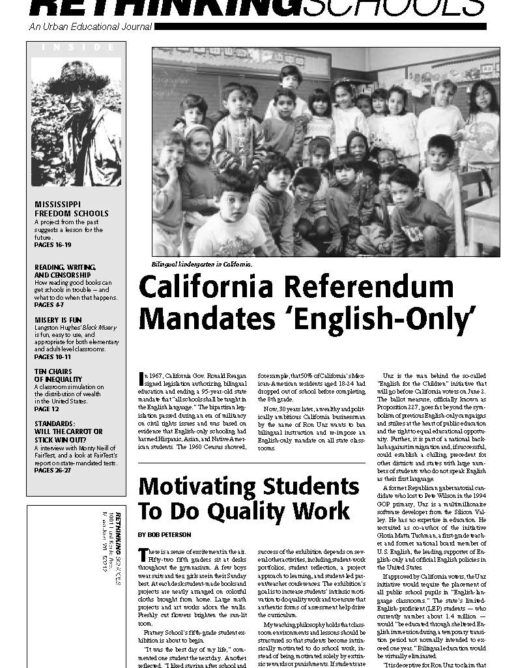Preview of Article:
Is Teaching ‘La Causa’ Grounds for Firing?
That fall, Vaughn Superintendent Arthur Martinez told the Cordova sisters they could not teach anything “that reflects the MEChA philosophy.” He accused Nadine of teaching “racial intolerance” and promoting “a militant attitude” in her students.
Under legal advice, the Cordova sisters asked that any further curriculum directives from Martinez be in writing. They believed that the superintendent’s directives not only violated their rights under the First Amendment but were counter to the district’s policies on handling complaints about curriculum. Nonetheless, they sought to comply until their lawyers could resolve matters.
By January of 1997, relations between the sisters and the superintendent were strained. Martinez told the sisters in writing that they could not use the supplementary text “500 Years of Chicano History,” could not study Cesar Chavez and the United Farm Workers union, or hand out any materials that promote “la causa.” Nadine argues that agricultural interests in the area were particularly concerned that students learning about Chavez and the UFW union.
But the prohibitions went beyond the UFW. The sisters were also told “to eliminate any reference to or discussion of Robert Kennedy, the U.S. Constitution, Dolores Huerta, justice, courage or non-violence,” according to Nadine’s attorney, Richard Rosenstock of the New Mexico Civil Liberties Union.
The controversy escalated when an Albuquerque newspaper ran a front-page story on Feb. 15 titled, “Chicano Studies Out in Vaughn.” Rosenstock told Rethinking Schools that Martinez and his allies on the board were furious about the article. “As soon as this article comes out, he [Martinez] starts soliciting complaints from people from six or eight years ago and starts to put together a case against the Cordova sisters.”</p

